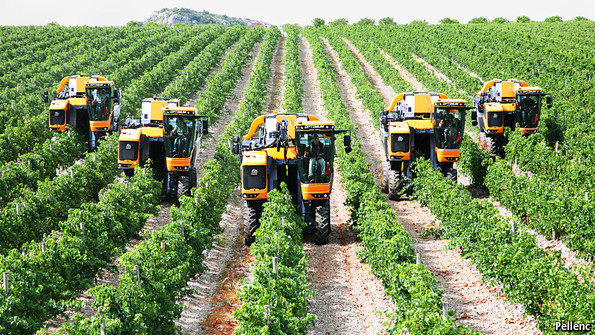By Ibiduuni Banjoko
Agricultural sector of the Nigerian economy has been adjudged as capable of being the greatest Gross Domestic Product earner as it used to be in the pre and immediate post-independence years. The discovery of oil has led to the neglect of the sector such that it currently provides employment for a paltry 35% of the population as at 2020.
As reported by the FAO, agriculture remains the foundation of the Nigerian economy, despite the presence of oil in the country. It is believed that the best and quickest route to economic development is the agricultural path as that is the area of the country’s comparative advantage. There have been quite a number of initiatives by successive governments to develop agriculture.
The operating environment in terms of access to loans, land and other incentives need to be bettered to entice investments into the sector. Although starting-up can be rough owing to the issues of capital and profitability, the best part of agribusiness is that as long as people are eating there is room for possibilities.
Nigeria’s small farms holdings produce 80 percent of the total food and 33 percent of this country’s land is under cultivation for this purpose. Beyond these small holding farms, there are quite big mechanized farms, which produce essentially for export.
Promising as the agriculture sector is, the youth are mostly reluctant to embrace it because of the tediousness of small holding farming and huge capital required for mechanized farming. Rather, they have their eyes set mostly on blue collar jobs or the civil service. However, some daring Nigerians have ventured into agriculture and agribusinesses and have good stories to tell.
As a corporate citizen committed to promoting economic development of the nation, MARKETING EDGE, Nigeria’s leading marketing & Advertising publications undertook a survey of the sector with a view to identifying the top SME agribusiness companies in Nigeria, celebrate them as motivation to others and demonstration that the agricultural sector is not only viable but one of the quickest route to economic sustainability at the level of the individual, corporate entity and as a nation.
Waldeo Farms Limited
Waldeo farm was established in 2018 by Wale Odunsi and Adebisi Adewunmi with the aim of being a premier commercial supplier of eggs in Nigeria and to create employment opportunities for the youth. The company’s farm is situated in Epe, Lagos State. The duo started up the business with a five thousand capacity facility but now it has over twenty thousand birds and is still expanding. The company was started with one million naira and the business has grown into a multi-million naira venture.
Jahdai Global
Jahdai Global is into farming to address extreme poverty, hunger, unemployment and population growth that does not match its food supply. It was founded by Ogbidi Edwin and Abuh Jonathan with the aim to be in the frontline of global initiative on agricultural programs and to assist in eradicating hunger and poverty. Their core businesses are farm consultancy: risk assessment and management of existing farm, Farm audit, Sales and lease of farmlands. They also engage in African raw food sourcing, supply, local delivery, sales and export.
As a way of giving back to the community where they operate, Jahdal plans to engage and empower more than one hundred (100) community people and also to build a classroom for its host community through its Corporate Social Responsibility (CSR) program.
Simple Green
Simple green juices, is Nigeria’s first farm-to-bottle, organic, cold-pressed juice company. The company owns a farm situated in Oyo state where it produces all the fruits and vegetables used in its various juices. The CEO of Simply Green, Sola Ladoja, was motivated to start-up the company after he noticed that the green Juice he took regularly in New York was unavailable on his return to Nigeria. More importantly, the agriculture entrepreneur stated that the company’s purpose is to reduce the importation of fruits and vegetables into Nigeria, since most of them can be grown locally. The company was started with N250, 000 (US$700) in 2014 and the business has now grown into millions of naira.
Honeysuckles PTL Ventures
Founded by Cynthia Mosunmola Umoru, Honeysuckles PTL Ventures started out with the aim of selling processed agricultural produce to food retail chains and restaurants. However, the agropreneur encountered hindrances mainly inadequate supply and low quality of such food items. These hindrances led her to start her own farm and food supply chain. Today, Honeysuckles produces high quality food products that are well packaged from its own farms and ponds. The HoneySuckles CEO is currently devoted to training and mentoring young Nigerians who want to venture into agricultural food production.
Kerekusk Rice
Lagos-born-and-bred Rotimi Williams ventured into Nasarawa state and brought forth Kerekusk Rice. Thanks to a partnership with his host community, which provided him with 45,000 hectares of land, Kerekusk Rice is the second-largest rice farm in Nigeria. The company produces about 8,000 metric tons a year. Kereksuk has plans to expand production and contribute its own quota to reduce the weight on the economy to keep importing rice.
Mebo Farms
Mebo farms is an indigenous agricultural trading farm of Adrena Media which is involved in the export of a gamut of product such as Maize, Sorghum, Sesame Seeds, Cashew Nuts, Millet, Soya Beans, Palm Kernel Seeds, Molasses, Bran Wheat Offal, Cavendish Banana, Corn Product e.t.c. Situated in Abuja, the farm has the capacity to store and supply over 15,000 Metric Tonnes of agricultural commodities, in-house technical team, experienced agronomic, quick transport / logistics company and a stand-by warehouse capacity of 100,000 bags of commodities.
Ladi Integrated Farms
Ladi Integrated Farms is an agro farm situated in Akure, Ondo state. It produces Vegetables, watermelon, tomatoes etc. in commercial quantities for local consumption and international market. The farm prides itself in being organic and providing the freshest produce.
Infinity animal care
The CEO of Infinity animal care is Babington kehinde who is into breeding of pig and broiler, he was motivated to start-up the company because he had always loved animal husbandry, the love which saw him studying animal breeding and genetics at University of Agriculture, Abeokuta. The company’s farm is situated in Ikorodu, Lagos. The company was started with N400,000 in 2012 and the business has now grown into a multi-million naira affair.
Farmcrowdy
Farmcrowdy is arguably the first agritech company in Nigeria. The company describes itself as “the leading agritech company in Nigeria focused on providing the necessary tools and technology for farmers and agribusiness to boost food production with better yields, lower costs, and smarter marketing.”
The company was founded in 2016 by Onyeka Akumah. Other founders on the team are Ifeanyi Anazodo, Tope Omotolani, Akindele Phillips and Jimoh Maiyegun.
According to Farmcrowdy, since their launch, they have empowered over 25,000 farmers. They have raised over 3 million chickens over 3 years.
Farmcrowdy has offices in Abuja and Lagos State. The agriculture products that you can invest on the Farmcrowdy website are maize, poultry, tomatoes, and rice. They have an investment cycle from 5 months to around 12 months depending on the product you want to invest in.
Pasmak Farm
Pasmak Farms is one of the subsidiaries of Pasmak Ventures and services. It ventured into varieties of agricultural products like crop (cereals, tubers and fruits), freshly harvested vegetables, poultry products (Broilers, Layers, eggs), fishery, grass cutter, beef/pork and snails. It also educates interested people on how to go into this business either in small or large scale farming. It was established in 2020. It is situated at Ikorodu Lagos.
These companies and many more have ventured into the largely uncharted agricultural sector as underdogs and have come out with stories of success. They are truly the proof that real wealth and development may not be in the cities and the blue collar companies our youth have their eyes glued to but under the fertile soils of our rural areas; waiting to open up the riches lurking within its dark bowels.






Comment
No comments found.